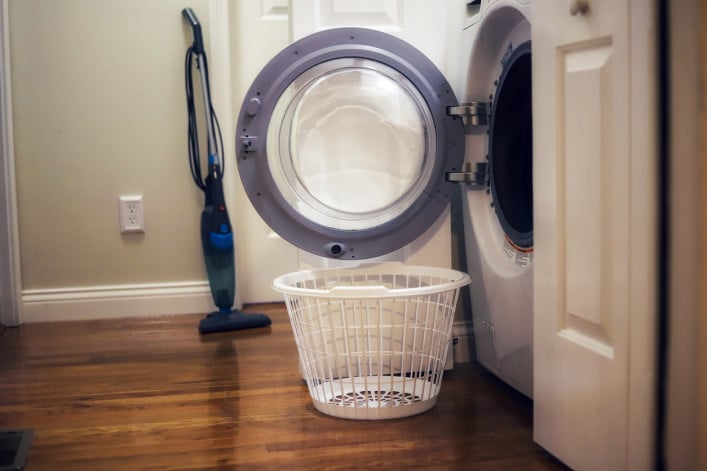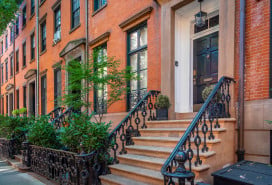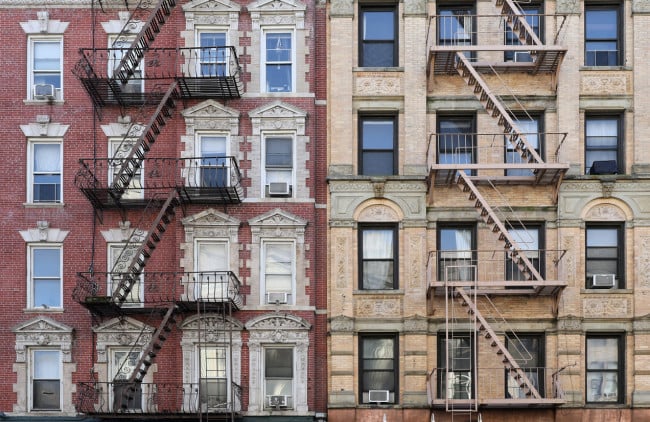Ask Altagracia: I installed a washing machine and now the landlord wants me to pay a fee. Is that allowed?
- Surcharges are allowed for tenant-installed washers, dryers, and dishwashers in rent-stabilized units
- The monthly fee for a washing machine is either $20.86 or $23.38 if the landlord pays for utilities

Disclosures about surcharges are supposed to be outlined in your lease.
iStock
I recently installed a washing machine in my rent-stabilized apartment. I’ve been asked to pay an additional fee as a result. Is the landlord allowed to collect this fee?
There are certain fees authorized by law for tenants in rent-stabilized apartments and this includes washing machines, dryers, and dishwashers. “These are permitted surcharges,” said Altagracia Pierre-Outerbridge, attorney and founder of Outerbridge Law representing residential tenants, condo owners and landlords.
New York State Division of Homes and Community Renewal (DHCR) outlines the legal surcharges that can be added to your rent if you install a washing machine, dryer or dishwasher. They also provide information about surcharges for air conditioners. The monthly surcharge for a washing machine is either $20.86 or $23.38, with the higher charge levied if the utility cost is paid by the landlord.
“The surcharges for the appliances vary depending on who pays the energy bills for the apartment,” Pierre-Outerbridge said. For example, if you pay for your electricity, no surcharge is allowed for a dryer or air conditioner. However, if the landlord pays the utility bill, the fee will be either $3.07 or $9.71 for a dryer, depending on whether the appliance is gas or electric.
Likewise, a landlord can change $34.88 per month for an air conditioner in a rent-stabilized apartment if electricity costs are included in the rent.
Triple damages deter sketchy fees
If a landlord is found to be overcharging a rent-stabilized tenant, they are liable for triple damages.
“This is a deterrent because if there’s a valid overcharge claim they will owe you three times what you overpaid,” she said.
It’s worth noting there’s a difference between a surcharge and an additional payment for a service not included in the lease. For example, you might pay additional money for a parking space that is not included in your rent. This would not be considered a surcharge. You are choosing to pay for an additional amenity. (However, if the parking space is included in your rent and then the space is taken away, this would be considered a reduction of services of your rent-stabilized apartment and you could file an overcharge complaint to DHCR.)
Other permitted and prohibited surcharges
Another permitted fee is for late rent, which is capped at $50 or five percent of the monthly rent, whichever is lower. However, you cannot be charged for any kind of background check if you are already living in the apartment—this includes checks on prospective roommates or additional family members. “This is different from a situation where you want to put them on the lease,” Pierre-Outerbridge said.
It’s possible you may also see a 421a surcharge if you are in a building that received a 421a tax abatement. This fee is applicable for some buildings during the abatement phase-out period.
Take another look at your lease
Disclosures about surcharges should be in your lease, either in your original lease known as a vacancy lease, or in your renewal lease.
“The renewal lease is a densely written document and all this should be outlined in that form,” Pierre-Outerbridge said.
Altagracia Pierre-Outerbridge, Esq. is the owner of Outerbridge Law P.C, focusing primarily on tenant representation. The firm represents all sides in landlord-tenant litigation and transactional matters such as month-to-month holdovers, nuisance cases, licensee cases, harassment claims, repair cases, tenant buyouts, succession claims, DHCR overcharges and rent reductions and more. Pierre-Outerbridge has 15 years of experience litigating in Supreme, DHCR, and Housing Court. To submit a question for this column, click here. To contact Outerbridge Law P.C. directly, call 212-364-5612 or 877-OUTERBRIDGE, or schedule a meeting today.
You Might Also Like



























